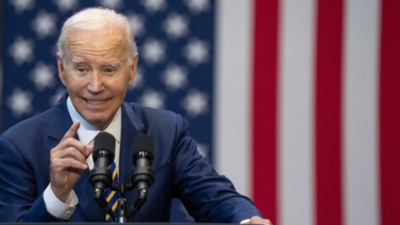The Biden administration announced new export rules Monday for advanced computer chips used in artificial intelligence, aiming to balance national security and economic interests.
The framework restricts chip access for around 120 countries, including Mexico, Portugal, Israel, and Switzerland, concerning some industry executives.
Commerce secretary Gina Raimondo emphasised the need to maintain America’s AI leadership. “As AI becomes more powerful, the risks to our national security become even more intense,” Raimondo said. The framework, she explained, “is designed to safeguard the most advanced AI technology and ensure that it stays out of the hands of our foreign adversaries but also enabling the broad diffusion and sharing of the benefits with partner countries.”
National security adviser Jake Sullivan said the framework aims to keep cutting-edge AI development within the US and with close allies. However, industry groups like the Information Technology Industry Council and the Semiconductor Industry Association expressed concerns about potential supply chain disruptions and harm to US competitiveness. “The new rule risks causing unintended and lasting damage to America’s economy and global competitiveness in semiconductors and AI by ceding strategic markets to our competitors,” said SIA President and CEO John Neuffer.
An industry executive, speaking anonymously, claimed the restrictions would impact chips used in video games and data center construction abroad, contradicting government claims. The 120-day comment period means the incoming Trump administration could ultimately finalize the rules.
Officials stated the urgency stems from a perceived six- to 18-month US advantage in AI over rivals like China. Nvidia’s Ned Finkle criticized the framework: “While cloaked in the guise of an ‘anti-China’ measure, these rules would do nothing to enhance US security,” he said. “The new rules would control technology worldwide, including technology that is already widely available in mainstream gaming PCs and consumer hardware.”
Roughly 20 allies, including nations like Australia, Canada, France, Germany, Japan, South Korea, and the UK, will face no restrictions. Other countries face import caps of 50,000 graphics processing units, potentially increasing to 100,000 through government agreements. Some institutions can apply for permission to purchase up to 320,000 units over two years, subject to limits on overall AI computational capacity abroad. Orders equivalent to 1,700 units will be exempt from licensing and caps, likely benefiting universities and medical institutions.
Microsoft expressed confidence in complying with the new policy. “We’re confident we can comply fully with this rule’s high security standards and meet the technology needs of countries and customers around the world that rely on us,” said Brad Smith, Microsoft’s president.




